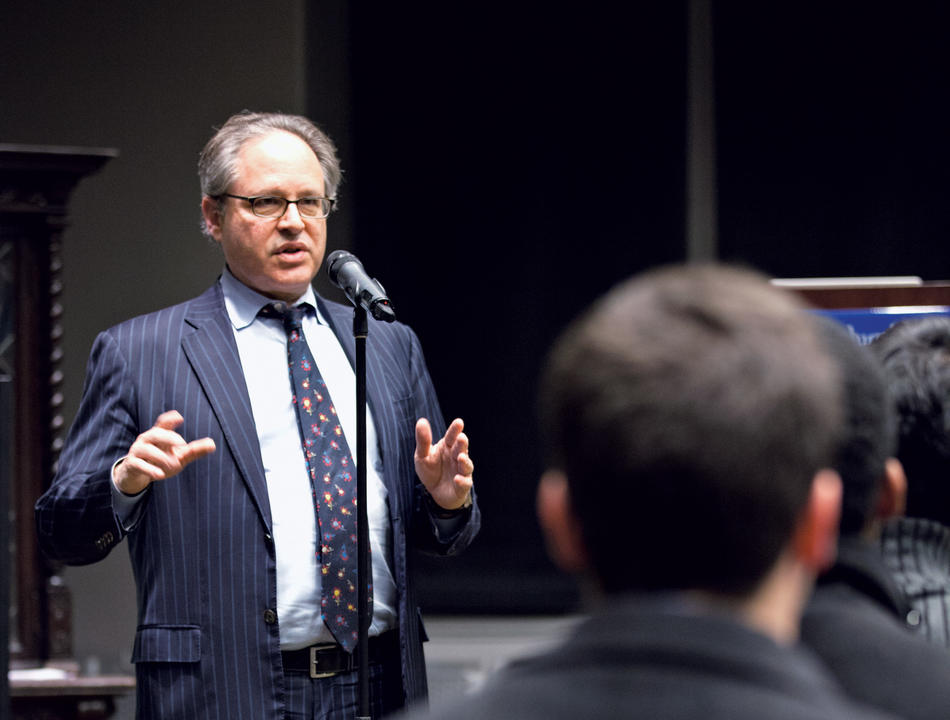After leading the Graduate School of Journalism for a decade, a period in which the rise of digital journalism has prompted the school to undertake some of the most dramatic programmatic changes in its hundred-year history, Nicholas Lemann will step down as dean in June.
Lemann announced this past October that he will not serve another five-year term as dean. He will remain at the school as a professor.
“My best ideas have been implemented,” Lemann says. “It’s time for somebody else to take over.”
A political journalist who is a staff writer at the New Yorker and the author of five books, Lemann plans to take a year-long sabbatical before returning to the classroom in the fall of 2014.
“I want to go back to what I was doing before, which is to choose a big sociopolitical event in American history and tell the story of that event,” says Lemann, whose most recent book, Redemption: The Last Battle of the Civil War, examined the culture of the Reconstruction-era South. “Right now, I’m interested in Wall Street and the global financial system.”
Columbia’s journalism school is a different institution today than it was when Lemann took over in 2003. Since then, the increasing popularity of news websites has led many journalism schools, Columbia’s included, to dramatically expand their instruction in video, audio, and multimedia tools. But unlike most of its peers, Columbia’s J-school is now also focused on training people to develop new ways of researching and publishing news, such as by inventing computer programs to help reporters spot patterns in huge data sets, designing interactive charts and graphs to display statistics, and creating novel strategies to disseminate content through social media. In the past two years, the school has launched new degree and fellowship programs to teach the necessary skills.
“We’re producing toolmakers, not just tool users,” Lemann says.
During Lemann’s tenure, the journalism school has also deepened its ties with the rest of the University. In 2005, for instance, the school created a master of arts program that gives journalists in-depth knowledge of particular subjects that they aim to cover; students in this program work with journalism professors as well as with faculty in politics, business and economics, arts and culture, and science and health.
“One of my goals was to make the journalism school a more academic institution, one more analytically and intellectually oriented,” says Lemann. “And I think we’ve accomplished that.”



